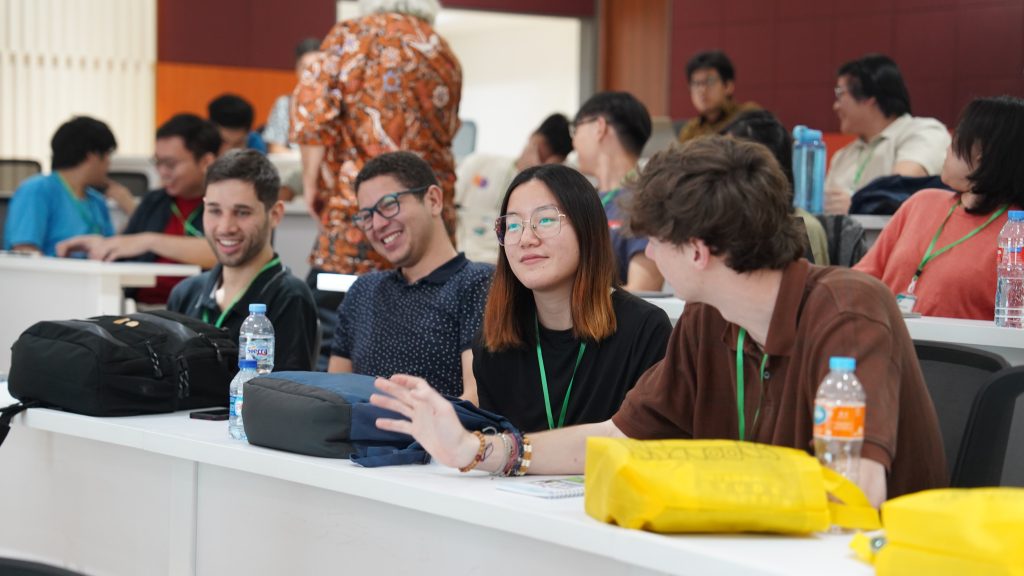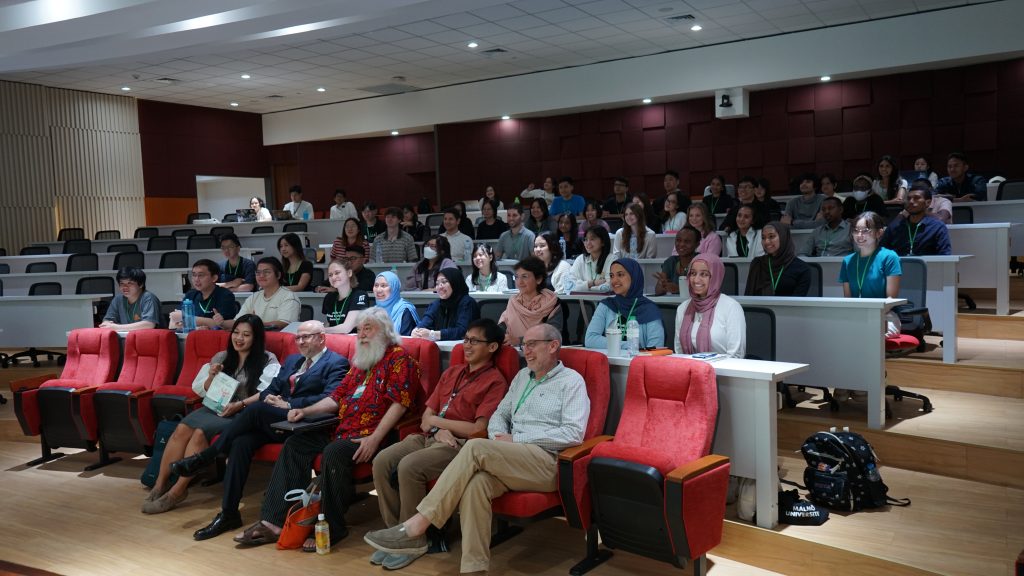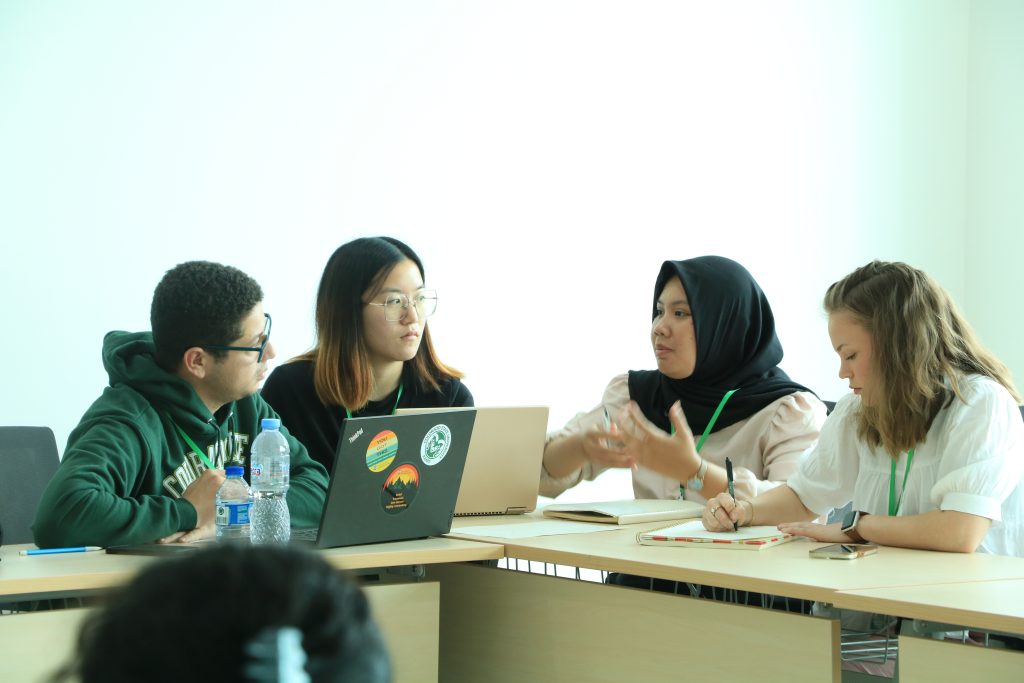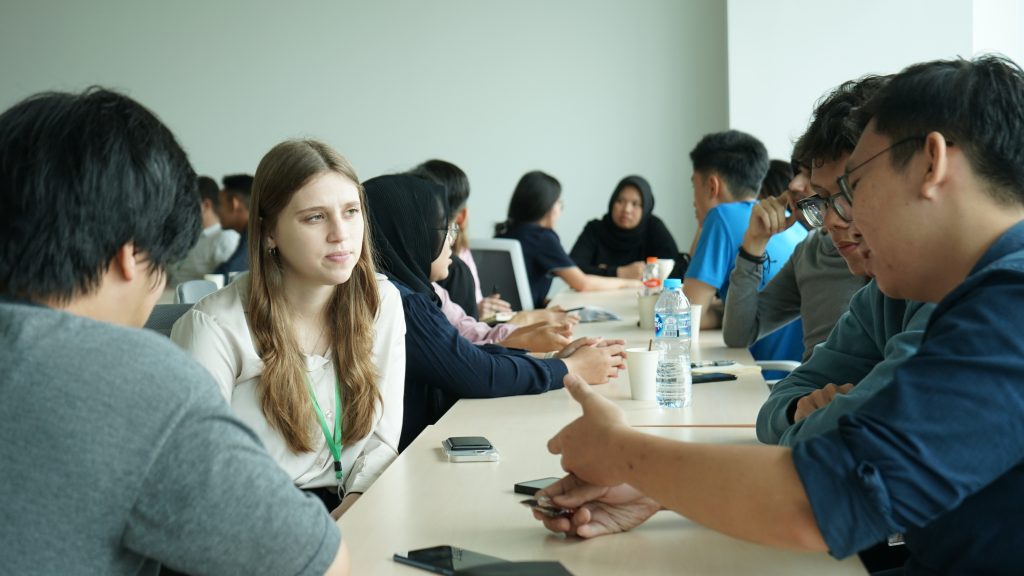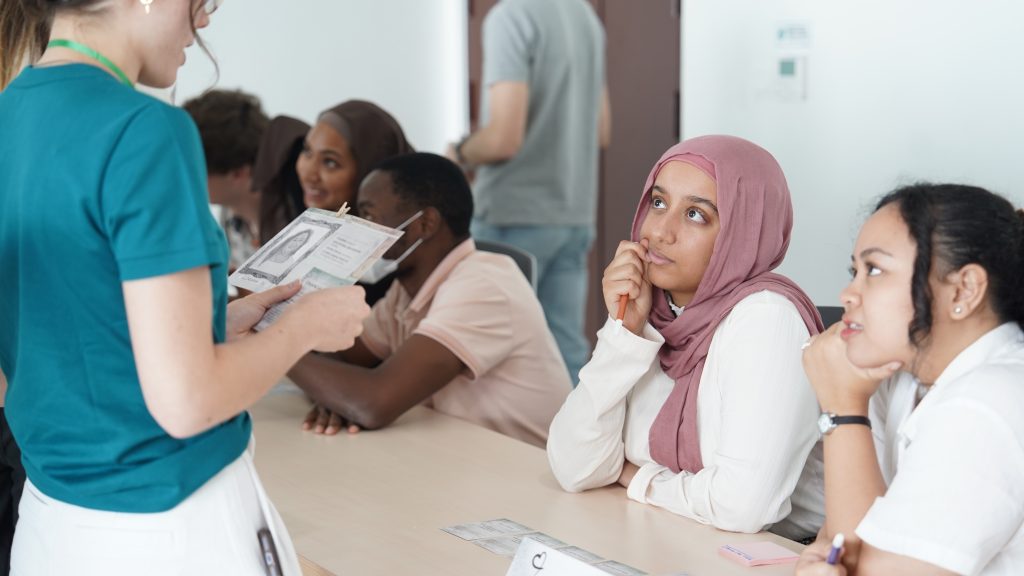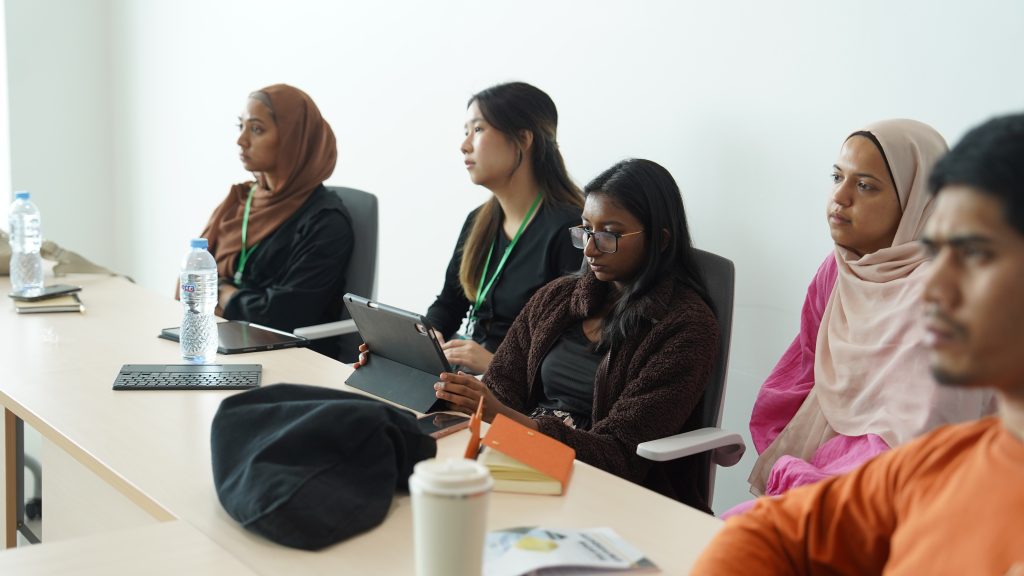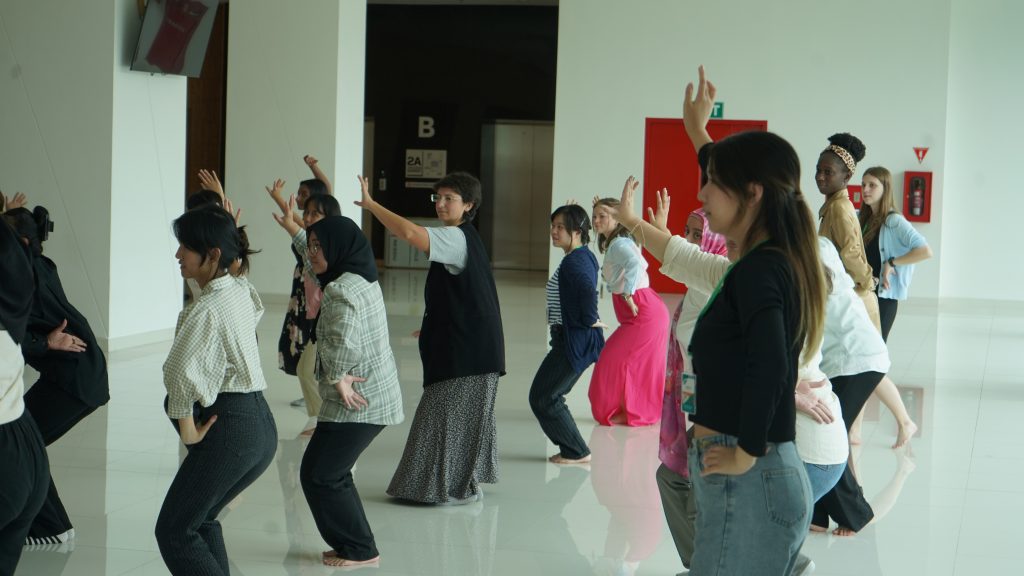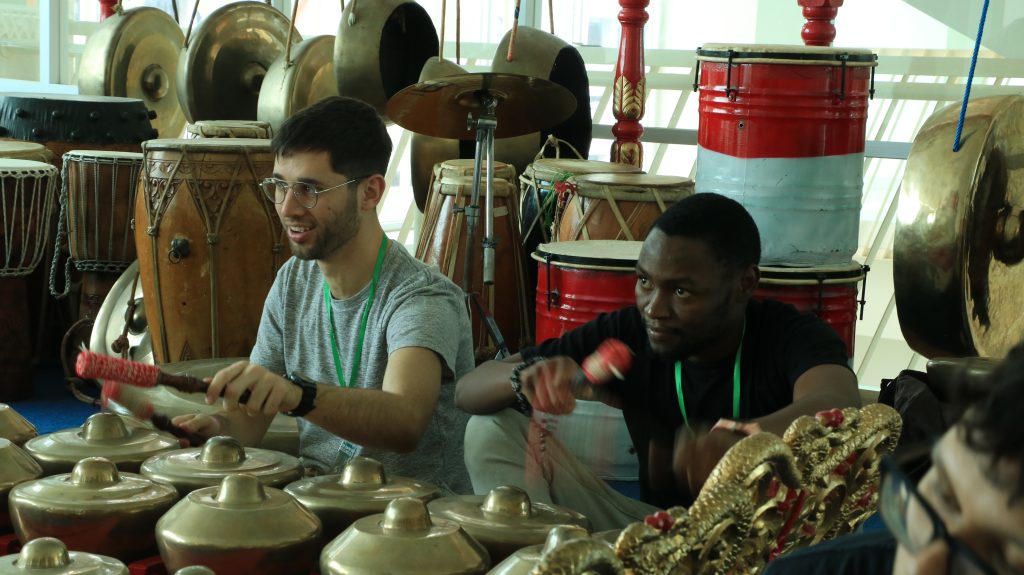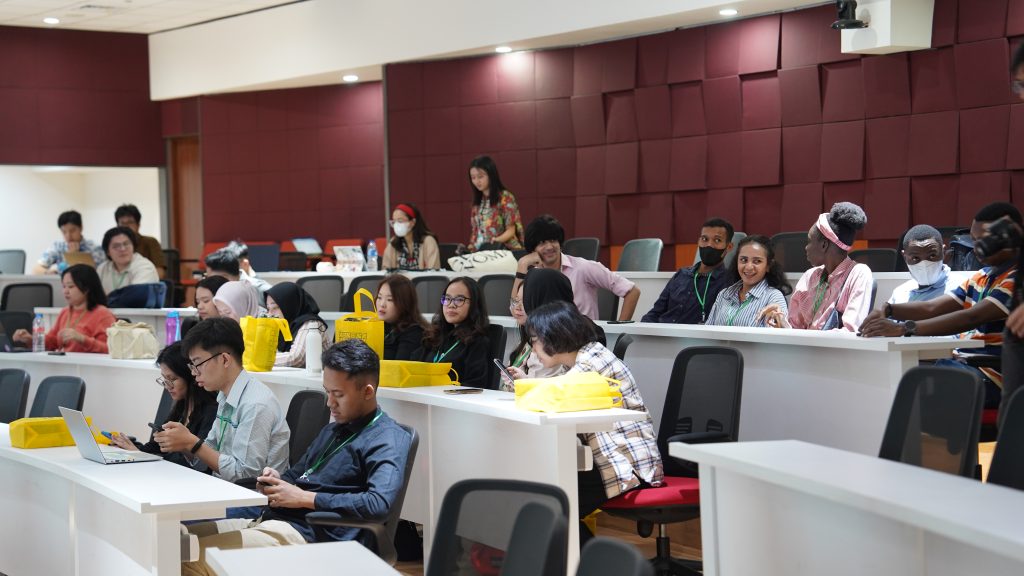
This year’s International Student Conference (ISC) was a huge success. Held under the grand theme of “Empowering Youth and Local Voices for Human-Centric, Sustainable and Inclusive Smart Cities,” participants were expected to come up with brilliant and innovative ideas to build a sustainable and smart city, then present them through a video presentation on the final day. To facilitate their brainstorming and ideation, the first three days of ISC were packed with three keynote lectures and six workshops. Each day has its own overarching theme to guide participants in developing a well-rounded understanding of issues surrounding the development of smart cities.
On the first day, three keynote lectures along with two workshops were given under the theme of “Human-Centric Solutions: Building Smarter Cities with Socioeconomic Inclusivity and Sustainability Beyond Technology.” The first keynote lecturer, Kuswanto, Ph.D, talked about the Indonesia 2045 vision to build Nusantara as a smart and sustainable forest city. Kuswanto was the perfect speaker for that session as he is currently the Acting Director of Government Administration and License Control of Nusantara, Indonesia’s new and upcoming capital city. Afterwards, the Director of Center of Public Policy and Management Studies (CPMS), Tutik Rachmawati, Ph.D, elaborated on the fundamentals of building a smart city, and how the youth can help contribute to its development. The third and last keynote lecture of the day was delivered by Prof. Dr. Sergio Nasarre-Aznar from the University Rovira i Virgili (URV). Sergio, who is also the Founder of the UNESCO Housing Chair in URV and rich with knowledge and experience, gave a realistic explanation on the housing situation for young people today and the urgency to tackle the issues relating to it to mitigate and prevent homelessness. Following the keynote lectures were two interactive workshops by Prof Dr. Jurgen Neyer, from the European University of Viadrina, and Rei Firdha Amalia, from the Indonesian Office of the United Nations High Commissioner for Refugees (UNHCR Indonesia). These workshops aimed to encourage participants in youth activism and draw attention to effective refugee inclusion in communities.
The second day, a new theme was introduced for the day’s workshops: “Connecting Minds, Building Communities: Pioneering Local Initiatives and Fostering Local Government Involvement.” The first workshop was led by Dr. Ferran Mane Vernet from the URV, who talked about local government and community responses to early school leaving. This workshop helped enrich participants on their knowledge of the topic and fueled their critical thinking to develop solutions to tackle the issue. The other workshop was taught by Prof. Sergio, where he invited the participants to expand their comprehension after his lecture from the previous day on homelessness. From his workshop, participants were able to understand the important role of governments, non profit organisations, and social workers that possess the power to help homeless people.
The theme for the third day was “Unlocking the Power of Individuals: Engaging Youth in Building Sustainable Cities through Innovation and Collaboration.” ISC was privileged to have Dr. Justin Henriques from James Madison University to give a creative workshop on “Using Bio-inspired Design Approaches to Create Sustainable Urban Landscapes.” With the guidance from Justin, participants delved into their innovative minds, drawing inspiration from nature to create bio-inspired and sustainable solutions to problems in urban landscape. A workshop presented from a representative from Food Bank Bandung, Dr. M. Gumilang Pramuwidyatama, marked the final workshop for ISC 2024. He shone a light on the common problem of food surplus found in restaurants and hotels juxtaposed with the stark presence of hunger across urban communities. Volunteers can work with movements like the Food Bank to mobilise surplus from being food waste, to feed children and those struggling with hunger and malnutrition to get enough nutritious food to prevent stunting.
Through these lectures and workshops, participants gained an immense amount of new knowledge and perspectives to help them develop into empowered youths that can contribute to a sustainable and brighter future. In the remaining three days of ISC, they also had the opportunity to learn outside the classroom and take what they learned to be implemented through practical activities, topping it off with a presentation to sum up what they have learned. ISC 2024 provides the perfect opportunity for young people to grow into better individuals that can create a greater impact in their communities.
